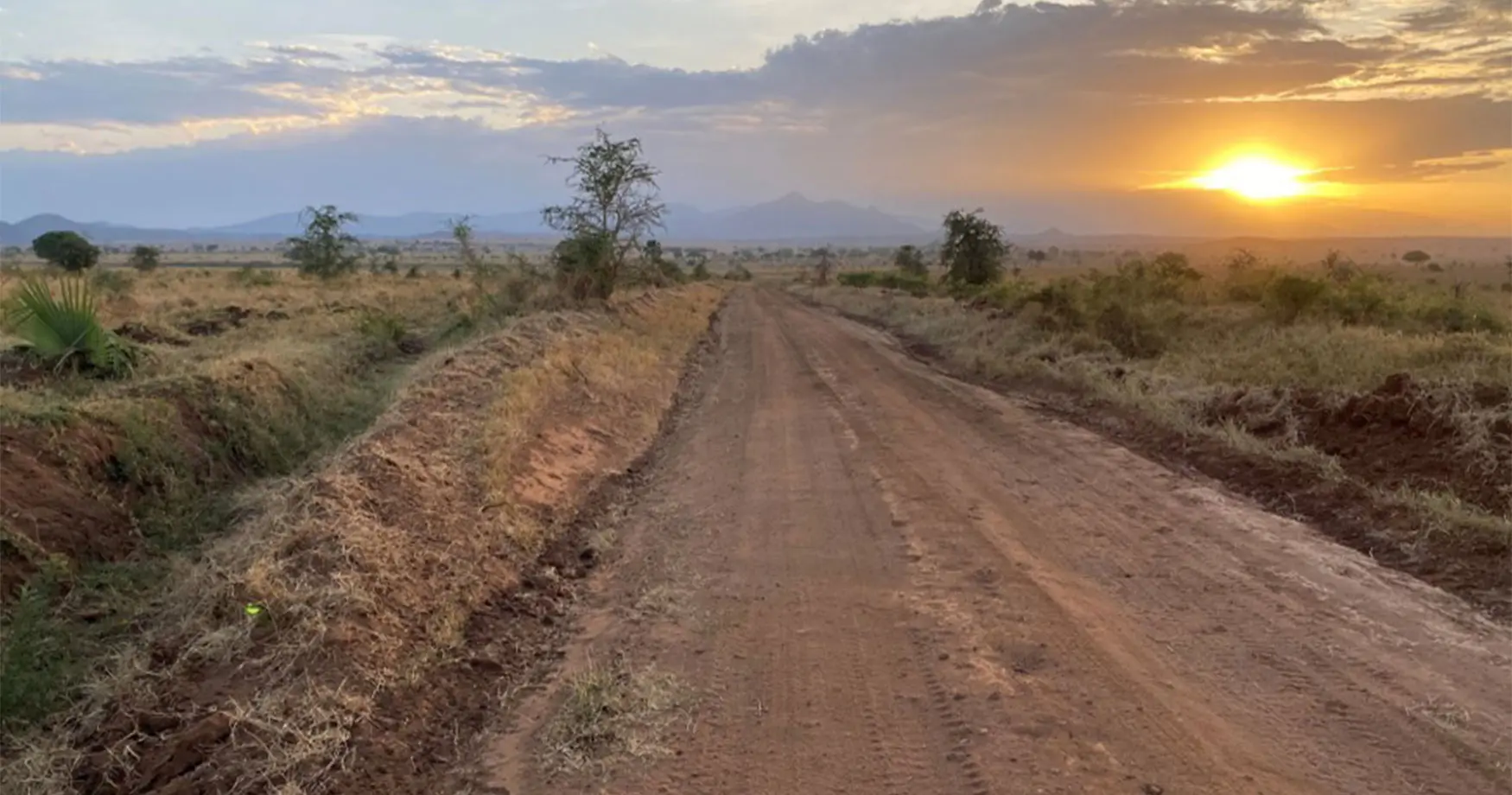Policies
Breakdown of the Uganda Police Force Annual Crime Report 2024
The Uganda Police Force Annual Crime Report for 2024 highlights a 4.1% decrease in overall crime compared to 2023.

The Uganda Police Force Annual Crime Report for 2024 highlights a 4.1% decrease in overall crime compared to 2023. Reported cases dropped from 228,074 in 2023 to 218,715 in 2024. While this reduction suggests improvements in law enforcement and crime prevention efforts, a significant number of cases remain unresolved.
Out of the reported crimes, 81,750 cases were taken to court, resulting in 26,328 convictions, indicating progress in the justice system. However, 43,579 cases are still pending, highlighting the need for faster case processing. Additionally, the number of arrests stood at 88,985, demonstrating that police investigations have successfully identified and charged many suspects.
The report includes a crime rate indicator, revealing that 476 out of every 100,000 people in Uganda were victims of crime in 2024. Although crime has decreased, it remains a significant concern.
Crime Trends & Distribution
Crime is not evenly distributed across Uganda. Some areas experience higher crime rates due to population density, economic conditions, and social factors. The report identifies Kampala Metropolitan, Busoga, and Greater Masaka as crime hotspots, which reported the highest numbers of cases.
Crime rates were not consistent throughout the year, with peaks occurring in February, April, and September. These fluctuations may be attributed to seasonal factors, economic challenges, or social events that tend to trigger criminal activities.
The most commonly reported offenses in 2024 were:
- Theft (61,529 cases): This includes the theft of mobile phones, motorcycles, vehicles, and livestock. Theft remains the most widespread crime due to its financial impact and ease of execution.
- Assault (29,580 cases): Physical violence, including fights and domestic disputes, continues to be prevalent.
- Domestic violence (14,073 cases): This figure highlights ongoing issues related to gender-based violence and family conflicts.
- Sex-related offenses (14,425 cases): This category encompasses defilement, rape, and other sexual crimes, which remain a serious concern.
- Break-ins (13,511 cases): Many households and businesses fell victim to burglaries and forced entries.
The persistence of these crimes suggests that, while law enforcement is making progress, certain social and economic issues continue to drive criminal behavior.
Homicides & Violent Crimes
Homicide cases continue to pose a challenge in Uganda, with various forms of murder reported, including:
- Murder by assault: Victims die due to physical beatings.
- Murder as a result of mob justice: A disturbing trend where communities take the law into their own hands.
- Murder by strangulation: Often linked to personal revenge or domestic conflicts.
- Murder by shooting: Involving organized crime or illegal firearm possession.
- Murder resulting from domestic violence: Conflicts within families sometimes lead to tragic deaths, particularly among women and children.
The report indicates that the police are actively investigating these cases; however, community involvement is crucial in preventing such crimes.
Sexual & Child-Related Crimes
The numbers of sex-related crimes, particularly defilement (child sexual abuse) and rape, remain alarmingly high. While some cases have resulted in convictions, many others are either under investigation or pending trial.
Child-related crimes, including neglect, abandonment, and abuse, continue to be serious issues, suggesting the need for stronger child protection measures, increased public awareness, and improved legal enforcement.
Economic & Corruption Crimes
Economic crimes, such as bank fraud, land fraud, and corruption, were also highlighted in the report. These crimes undermine trust in institutions and hinder economic development. The report indicates that corporate fraud and land-related scams were among the most commonly reported offenses.
Corruption remains a major issue affecting both public and private institutions. Despite ongoing efforts to combat corruption, cases continue to surface, indicating the need for stronger anti-corruption laws and enforcement mechanisms.
Cybercrime & Media Offenses
With the increase in internet use, cybercrimes are on the rise. These include:
- Online fraud: Scammers deceive people into misleading financial transactions.
- Hacking: Unauthorized access to personal and corporate data.
- Fake news and misinformation: Manipulation of online content for political or financial gain.
Law enforcement is focusing on digital surveillance and cybersecurity measures to combat these growing threats.
Traffic and Road Safety
While crime rates have declined, road safety deteriorated in 2024. The report highlights the following findings:
- Road traffic crashes increased by 6.4%, rising from 23,608 in 2023 to 25,107 in 2024.
- Fatal crashes rose by 6.1%, resulting in 4,434 recorded deaths.
- Serious crashes, which lead to severe injuries, increased by 5.2%.
The primary causes of road accidents included reckless driving, speeding, and pedestrian negligence, with the Kampala Metropolitan area and major highways recording the highest number of fatalities. To address this issue, the government is implementing stricter traffic laws, enhancing road safety education, and increasing police patrols.
Fire and Rescue Services
The report indicates a 13.8% rise in fire incidents, totaling 1,280 fires reported in 2024. A major concern is that:
- 67% of fires occurred between 6 AM and 12 PM, primarily in homes and makeshift structures.
- Fires in schools increased by 9%, raising concerns about fire safety in educational institutions.
The police and fire departments are focused on improving response times and conducting awareness campaigns on fire prevention.
Interpol and International Crimes
Uganda’s Interpol and international relations division has addressed cross-border crimes, including:
- Drug trafficking, where illegal substances are smuggled through the country.
- Motor vehicle theft, with stolen vehicles being moved across borders.
- Extradition of wanted criminals, cooperating with international agencies to track fugitives.
Efforts are underway to enhance Uganda’s presence in global crime prevention networks.
Community Policing and Future Strategies
A significant policing reform in 2024 was the implementation of the Sub-County Policing Model, which assigns 18 police officers to each sub-county. This strategy aims to bring police services closer to communities, enhance crime prevention, and ensure quicker response times. Other key strategies for 2025 and beyond include:
- Improving police welfare by providing better housing, healthcare, and training for officers.
- Investing in technology, which involves expanding the use of CCTV surveillance, biometric identification, and digital crime databases.
- Strengthening partnerships through collaboration between police, local councils, and community leaders to prevent crime.
The Annual Crime Report for 2024 indicates a slight decrease in crime rates, but challenges persist. Law enforcement agencies are focusing on improving crime prevention strategies, expediting justice processing, and enhancing community engagement. However, pressing issues such as domestic violence, sex-related crimes, corruption, and road safety demand urgent action.
Business
Uganda’s Kitgum-Kidepo Road Upgrade
Following the reintegration of the Uganda National Roads Authority (UNRA) into the MoWT in 2024, the ministry has taken full responsibility for delivering this vital project.

In a landmark decision, Uganda’s Parliament has authorized the government to secure a loan of €110.5 million (approximately Shs 450 billion) from Standard Chartered Bank. This funding will go towards upgrading the 115.8-kilometer Kitgum-Kidepo Road, a crucial infrastructure project that will connect the Kitgum and Kaabong districts in northern Uganda. The project aims to enhance tourism, improve regional connectivity, and address the socioeconomic challenges faced by the impoverished Karamoja subregion.
The Kitgum-Kidepo Road Project, led by the Ministry of Works and Transport (MoWT), involves rehabilitating an existing gravel road that extends from Kitgum town to the outskirts of Kidepo Valley National Park. Following the reintegration of the Uganda National Roads Authority (UNRA) into the MoWT in 2024, the ministry has taken full responsibility for delivering this vital project. The upgrade will transform the current Class C1 gravel road, which suffers from potholes, ruts, and poor drainage, into a high-quality, paved road. The project also includes widening the carriageway, improving drainage systems, and constructing two bridges to ensure year-round accessibility.
The road’s strategic location makes it crucial for unlocking agricultural productivity in Kitgum and Karenga districts, facilitating trade with South Sudan and Kenya, and promoting tourism by improving access to Kidepo Valley National Park, one of Uganda’s premier wildlife destinations.
On April 30, 2024, during a plenary session presided over by Speaker Anita Among, Hon. Henry Musasizi, the Minister of State for Finance, advocated for the loan’s approval. He emphasized the road’s importance in addressing the Karamoja subregion’s low road density, only 5.9 kilometers of paved roads per 1,000 square kilometers, and its potential to drive economic growth. “This road is critical for tourism and regional development,” he stated, pointing out that poor infrastructure has hindered Uganda’s ability to fully realize its tourism potential.
Despite broad support for the loan, the approval process faced scrutiny. Legislators, including the Leader of the Opposition, Hon. Joel Senyonyi, raised concerns about skipping a report from the House Committee on National Economy and the lack of transparency regarding the loan’s terms, such as interest rates and repayment schedules. Senyonyi warned about the risks of approving loans without thorough vetting, citing past problematic agreements. A motion by Government Chief Whip Hon. Denis Hamson Obua to waive the committee report requirement ultimately prevailed, reflecting Parliament’s commitment to addressing infrastructure deficits. The government has pledged that the loan will align with Uganda’s fiscal sustainability goals, with further details available through the Ministry of Finance.
An Environmental and Social Impact Assessment (ESIA) conducted in June 2024 ensures compliance with national and international standards, including the IFC’s Performance Standards and Equator Principles IV. The project will traverse open woodlands and semi-arid vegetation, avoiding critical habitats but will result in the loss of 14.4 hectares of natural habitat in the Nyangea-Napore Forest Reserve. Mitigation measures will address vegetation clearance, waste management, and dust emissions. The project will impact 59 culturally significant shea butter trees, which are valued for their spiritual, medicinal, and economic importance, as well as archaeological sites, including Iron Age pottery. Mitigation strategies include documentation, selective rerouting where feasible, and community consultations to preserve cultural heritage.
Socioeconomically, the project will benefit 158,549 individuals across the Kitgum and Karenga districts by improving access to markets, schools, and health facilities. Extensive stakeholder engagement, including focus groups with women, youth, and community leaders, has helped shape the project’s design. A grievance redress mechanism will ensure ongoing community feedback and conflict resolution. Challenges such as involuntary resettlement and gender-based violence will be mitigated through cash compensation, livelihood restoration initiatives, and community sensitization, with special attention given to vulnerable groups.
The upgraded Kitgum-Kidepo Road is poised to deliver transformative benefits, including:
- Tourism Boost: Improved access to Kidepo Valley National Park is expected to increase visitor numbers, supporting Uganda’s Vision 2040 goal of promoting tourism and potentially boosting regional tourism revenue.
- Economic Growth: Enhanced connectivity will facilitate domestic and cross-border trade, unlocking agricultural potential and creating hundreds of local jobs during construction, with further economic impact assessments underway.
- Social Impact: Year-round, safe passage will improve access to education, healthcare, and markets while reducing travel times. The upgrade will introduce speed bumps, signage, and pedestrian crossings to address current safety gaps, such as the low helmet usage (17%) among bodaboda cyclists and inadequate road markings.
- Environmental Benefits: A sealed road will reduce dust emissions, improving air quality and public health.
While the project holds immense promise, it faces challenges, including managing construction-related disruptions and ensuring equitable benefits. Mitigation measures include dust suppression, community sensitization on road safety, and adherence to a Resettlement Action Plan to support affected individuals. The road’s climate-resilient design, featuring elevated embankments, stormwater management, and a Climate Risk Monitoring Framework, will mitigate flood risks in a region with bimodal rainfall. The Ministry of Works and Transport (MoWT) will implement a robust monitoring framework to track environmental, social, and economic outcomes, with regular community feedback to ensure accountability.
The approval of the Kitgum-Kidepo Road upgrade marks a pivotal moment for Uganda’s northeastern region. By addressing infrastructure deficiencies, the project aligns with national development goals and sets the stage for economic and social transformation. As implementation progresses, stakeholders must ensure transparent execution and robust mitigation to maximize benefits for communities, businesses, and tourists. A map of the road’s route is available through the MoWT’s project documentation.
This historic investment in Uganda’s infrastructure underscores the government’s dedication to fostering inclusive growth and unlocking the potential of one of its most underserved regions. The Kitgum-Kidepo Road is not just a pathway; it is a gateway to a brighter future.
Policies
What Ugandans Need to Know About E-Waste
Beyond health concerns, e-waste severely impacts Uganda’s environment.

As Uganda moves towards becoming a digital hub in Africa, a significant challenge has emerged: electronic waste, or e-waste. This includes discarded items such as old smartphones, laptops, refrigerators, and solar panels, which are accumulating at an alarming rate. This e-waste poses risks to the environment, public health, and economic development. However, with the right knowledge and proactive measures, Ugandans can turn this challenge into an opportunity for a cleaner, greener, and more prosperous future. Based on the government’s efforts through the Ministry of ICT and National Guidance, here’s what every Ugandan should know about e-waste and how to address it.
E-waste consists of discarded electrical or electronic devices, such as mobile phones, computers, televisions, batteries, and household appliances that are broken, outdated, or no longer in use. These items contain valuable materials like gold and copper, and plastics, but they also include hazardous substances like lead, mercury, and cadmium, which can cause serious harm if not handled properly. In Uganda, the rapid adoption of mobile phones, over 70% of the population owns one, combined with e-governance initiatives and solar energy systems, is contributing to the growth of e-waste. In 2019, Uganda generated 32,000 tons of e-waste, but only a tiny fraction of 0.18 tons was formally recycled, leaving most to be processed unsafely or disposed of in landfills.
E-waste is not just an eyesore; it is a critical issue with significant implications for health, the environment, and the economy. Improper disposal of e-waste can release toxic substances that pose serious health risks. For instance, lead from old computer monitors can harm the brain and kidneys, while mercury from fluorescent bulbs can affect unborn babies and lead to neurological disorders. The burning of e-waste plastics, a common practice in informal recycling, releases dioxins that are linked to cancer. Informal recyclers in areas like Kampala’s Kiteezi landfill or Katwe face the highest risks, working without protective gear, while nearby communities suffer from contaminated air and water. A 2020 study in Kampala revealed elevated lead levels in the blood of informal workers, highlighting the urgency of this issue.
Beyond health concerns, e-waste severely impacts Uganda’s environment. Landfills can leak heavy metals into the soil, affecting crops and livestock, while battery chemicals contaminate rivers and lakes, including Lake Victoria, jeopardizing fish populations and drinking water quality. The burning of e-waste emits toxic fumes, deteriorating air quality and contributing to climate change. Without proper management, Uganda’s landscapes and biodiversity may face irreversible damage, undermining the nation’s sustainability goals.
Conversely, e-waste presents significant economic opportunities. It is a source of valuable materials that can be recovered. For instance, recycling a ton of mobile phones can yield 300 grams of gold, worth thousands of dollars, along with reusable copper and plastics for manufacturing. By effectively managing e-waste, Uganda can create green jobs in recycling, repair, and research, particularly for its youthful population, where 78% are under 35. The government’s plans for e-waste facilities aim to harness this potential, promoting a circular economy in which waste is seen as a resource.
Uganda’s digital transformation is impressive, with 33 million mobile subscriptions and a 31% internet penetration rate by 2023. However, this progress has led to an increase in e-waste. The United Nations’ 2024 Global E-Waste Monitor warns that e-waste is growing five times faster than global recycling capacity, and Uganda is facing similar challenges. The country’s sole formal e-waste facility in Kampala, operational since 2021, cannot manage the 32,000 tons of e-waste generated annually. Most e-waste is processed informally, using unsafe methods like burning or acid leaching, posing dangers to both workers and the environment.
Public awareness about e-waste remains low; a 2021 study in Kampala found that 80% of residents did not know how to safely dispose of e-waste or understand its risks, often mixing electronic items with regular household waste. Additionally, Uganda faces challenges from imported e-waste, as second-hand electronics and illegal shipments from developed countries contribute to the waste burden, quickly becoming outdated. The prevalence of informal recyclers who lack training and protective equipment further complicates the issue, as their unsafe practices prioritize short-term profits over long-term health and environmental safety.
The Ugandan government, led by the Ministry of ICT and National Guidance, is taking decisive action to address the issue of electronic waste (e-waste). Since 2012, Uganda has established a strong policy framework, beginning with the E-Waste Management Policy, followed by 2016 guidelines that banned harmful practices such as open burning and unregulated dumping. The 2020 National Environment Regulations further strengthened these efforts by requiring licensed facilities for e-waste disposal and enforcing accountability measures. A key initiative, known as Extended Producer Responsibility (EPR), mandates that companies producing or importing electronics manage the disposal of their products at the end of their life cycle. Recent regulations announced in 2025 ensure strict enforcement, requiring compliance by licensed handlers.
Infrastructure development is also a priority. The Kampala e-waste facility, launched in 2021, is designed to collect, sort, and recycle e-waste, thus reducing environmental harm and creating jobs. There are plans for regional centers in Gulu, Mbarara, and Mbale to make recycling accessible across the country. In December 2024, the government announced negotiations with the World Bank to fund a modern, centralized facility capable of handling complex waste such as batteries and solar panels, demonstrating a commitment to scaling up solutions.
Community-driven initiatives are gaining momentum. In the Bidibidi Refugee Settlement, a pilot project repaired over 3,400 solar lanterns by 2023, generating jobs and reducing waste. This model has the potential to be expanded to other electronics. Public-private partnerships with companies and NGOs, such as the Global Green Growth Institute, are supporting sustainable recycling and job creation. A stakeholder workshop held in April 2025 at the Sheraton Kampala validated a national e-waste study, bringing together government, businesses, and communities to refine strategies. Upcoming public awareness campaigns will utilize radio, social media, and community events to educate Ugandans on safe disposal practices, addressing the existing awareness gap.
Every Ugandan has a role to play in managing e-waste responsibly. Instead of throwing electronics in regular trash or burning them, both of which pollute the environment, you should take old phones, batteries, and appliances to the Kampala e-waste facility or licensed handlers. Contact your local government or the National Environment Management Authority for guidance on collection points. Some manufacturers, under the EPR program, may offer take-back initiatives when you purchase new devices, so be sure to check with retailers.
Education is essential. Learn about the risks associated with e-waste, such as how old batteries can leak toxins into soil used for farming, and share this knowledge with family and neighbors. Stay updated through radio programs or social media campaigns from the Ministry of ICT regarding safe disposal methods. Encourage schools to teach children about e-waste, fostering a culture of sustainability. Supporting recycling and repair initiatives is a practical step as well. Recycle e-waste at formal facilities to recover valuable materials, which in turn boosts Uganda’s economy. Before discarding devices, consider repairing them, as seen in the Bidibidi project, which extends the lifespan of devices and saves money. When purchasing electronics, opt for durable, repairable products from brands with established recycling programs.
Advocacy can help amplify your impact. Urge local leaders to establish e-waste collection points, especially in rural areas, and support policies like EPR by choosing to buy from compliant companies. Join community initiatives or engage with NGOs partnered with organizations like UNDP or IOM to contribute to e-waste solutions. These actions, large or small, can make a significant difference.
E-waste is not only a challenge; it also presents a significant opportunity for building a sustainable Uganda. As Commissioner Ochero Michael stated, the aim is to ensure that technology benefits the environment while promoting the digital economy and public health. By effectively managing e-waste, Uganda can protect its rivers, soils, and air, safeguarding natural treasures like Lake Victoria. This initiative can also protect communities from toxic exposure, leading to healthier lives. The 32,000 tons of e-waste generated annually could power economic growth; for instance, recycling just 10,000 tons of mobile phones can yield gold worth $200,000 enough to fund schools or clinics. Additionally, green jobs in recycling and repair can empower youth and women, supporting Uganda’s youthful demographic.
Regionally, Uganda has the potential to lead by example, inspiring its East African neighbors, such as Kenya and Rwanda. The establishment of the Kampala facility, the creation of regional centers, and partnerships with the World Bank are steps toward this vision. However, public participation is crucial for success. By transforming e-waste into a valuable resource, Uganda can strengthen its circular economy, reduce reliance on mining, and contribute to global sustainability goals, such as responsible consumption and climate action.
E-waste is a shared responsibility. As Uganda embraces its digital future, it is essential for citizens, businesses, and communities to take action to ensure that technology does not come at the expense of health or the environment. Start today: find a recycling point, repair an old device, or raise awareness about the risks of e-waste. Together, Ugandans can transform e-waste from a growing problem into a cornerstone of a sustainable, prosperous nation. For more information, reach out to the Ministry of ICT and National Guidance, NEMA, or visit the Kampala e-waste facility. Let’s make e-waste a story of opportunity rather than harm.
Policies
President Museveni Signals Labour Reforms, Champions Wealth-Driven Job Creation
President Museveni revealed that the Cabinet will revisit critical labour issues in June 2025, following discussions with workers at State House, Entebbe.

President Yoweri Kaguta Museveni has announced potential sweeping reforms in Uganda’s labour sector, focusing on establishing a minimum wage, phasing out casual labour, and tightening oversight of employment agencies. Speaking at the International Labour Day celebrations on May 2, 2025, at Nakaale Grounds in Nakapiripirit District, the President outlined a vision for inclusive job creation rooted in wealth generation. The event, themed “Consolidating on the Gains of the Parish Development Model (PDM) for Increased Productivity and Inclusive Job Creation,” underscored the government’s commitment to economic transformation.
President Museveni revealed that the Cabinet will revisit critical labour issues in June 2025, following discussions with workers at State House, Entebbe. “We talked about the minimum wage, the tripartite arrangement, and the issue of casual labour,” he said. “We are also going to look into employment agencies that exploit workers by standing between them and employers.” He emphasized a sector-by-sector approach to ensure practical and consultative solutions.
The President also criticized the reliance on foreign labour in sectors where Ugandans are qualified, questioning why foreign companies import workers when local talent is available. He pledged stricter scrutiny of institutions prioritizing foreign labour over Ugandans.
Central to Museveni’s address was the linkage between wealth creation and sustainable employment. “Jobs cannot exist without wealth,” he declared, citing the Parish Development Model (PDM) as a cornerstone of this strategy. He shared success stories of PDM beneficiaries, such as a Fort Portal entrepreneur employing 15 people through animal feed production and a Nakapiripirit farmer who transitioned from green grams to pig farming, now managing 35 pigs.
The President highlighted investments in infrastructure, including low-cost electricity, railways, affordable credit through the Uganda Development Bank (UDB), and cheaper internet, as critical enablers of wealth creation. According to the Uganda Bureau of Statistics (UBOS), Uganda’s workforce includes 1.4 million factory workers, 3.6 million in agriculture, 5 million in services, 46,000 in ICT, and 480,000 in public service, with the private sector driving significant job growth.
Museveni praised the growing peace and development in Karamoja, while condemning cattle rustling as a barrier to progress. “A real cattle lover doesn’t steal,” he quipped, emphasizing both moral and practical reasons for rejecting such practices. He urged Ugandans to embrace patriotism and Pan-Africanism to expand market opportunities. “Factories and jobs mean nothing without a market. We need East Africa and beyond,” he said, highlighting the limitations of Uganda’s internal market.
The Minister of Gender, Labour and Social Development, Hon. Betty Amongi, described Uganda’s labour force as the economy’s backbone, with 73% of workers under 30, according to the 2024 UBOS Census. She stressed the need to protect workers’ rights and enhance productive employment. Hon. Anyakun Esther, Minister of State for Labour, Employment and Industrial Relations, sought continued presidential support for the Third Decent Work Country Program (2025/26-2029/30), launched at the event, to improve working conditions and labour productivity.
Representing workers, Mr. John Oketcho of the Central Organization of Free Trade Unions (COFTU) praised Museveni’s leadership and the PDM’s role in poverty alleviation. Mr. Fred Bamwesigye of the Uganda Federation of Employers commended the NRM government for stabilizing the economy, noting Uganda’s low inflation and projected GDP growth of over 7%.
The event saw the launch of the Labour Market Information System and a Digital Job Matching System, alongside the Third Decent Work Country Program, aimed at promoting employment and workers’ rights. President Museveni also awarded medals to 61 individuals for their contributions to Uganda’s development.
Attended by dignitaries including the 3rd Deputy Prime Minister, Rt. Hon. Rukia Nakadama, ministers, MPs, and diplomats, the celebrations underscored Uganda’s commitment to a dynamic, inclusive labour market driven by wealth creation and regional integration.
As the government prepares for further discussions in June, President Museveni’s vision signals a transformative approach to labour and economic policy, with the potential to reshape Uganda’s workforce for years to come.
-

 Entertainment11 months ago
Entertainment11 months agoMuseveni’s 2025 Copyright for Musicians breakdown
-

 Business11 months ago
Business11 months agoUganda’s Ministry of Finance projects significant growth opportunities in 2025
-

 Policies11 months ago
Policies11 months agoIs Uganda’s Shs10m Fine the WORST Thing for Cohabiting Couples?
-

 Sports10 months ago
Sports10 months agoThe Transformative Impact of World Cup Qualification for Uganda
-

 Health11 months ago
Health11 months agoBreaking down the Malaria Vaccine Rollout in Uganda
-

 Business11 months ago
Business11 months agoThe 9 worst mistakes you can ever make at work
-

 Entertainment11 months ago
Entertainment11 months agoIsaiah Misanvu Teams Up with Nil Empire for a Soul-Stirring Anthem of Gratitude and Transformation “Far Away”
-

 Business11 months ago
Business11 months agoUber and Lyft are finally available in all of New York State










